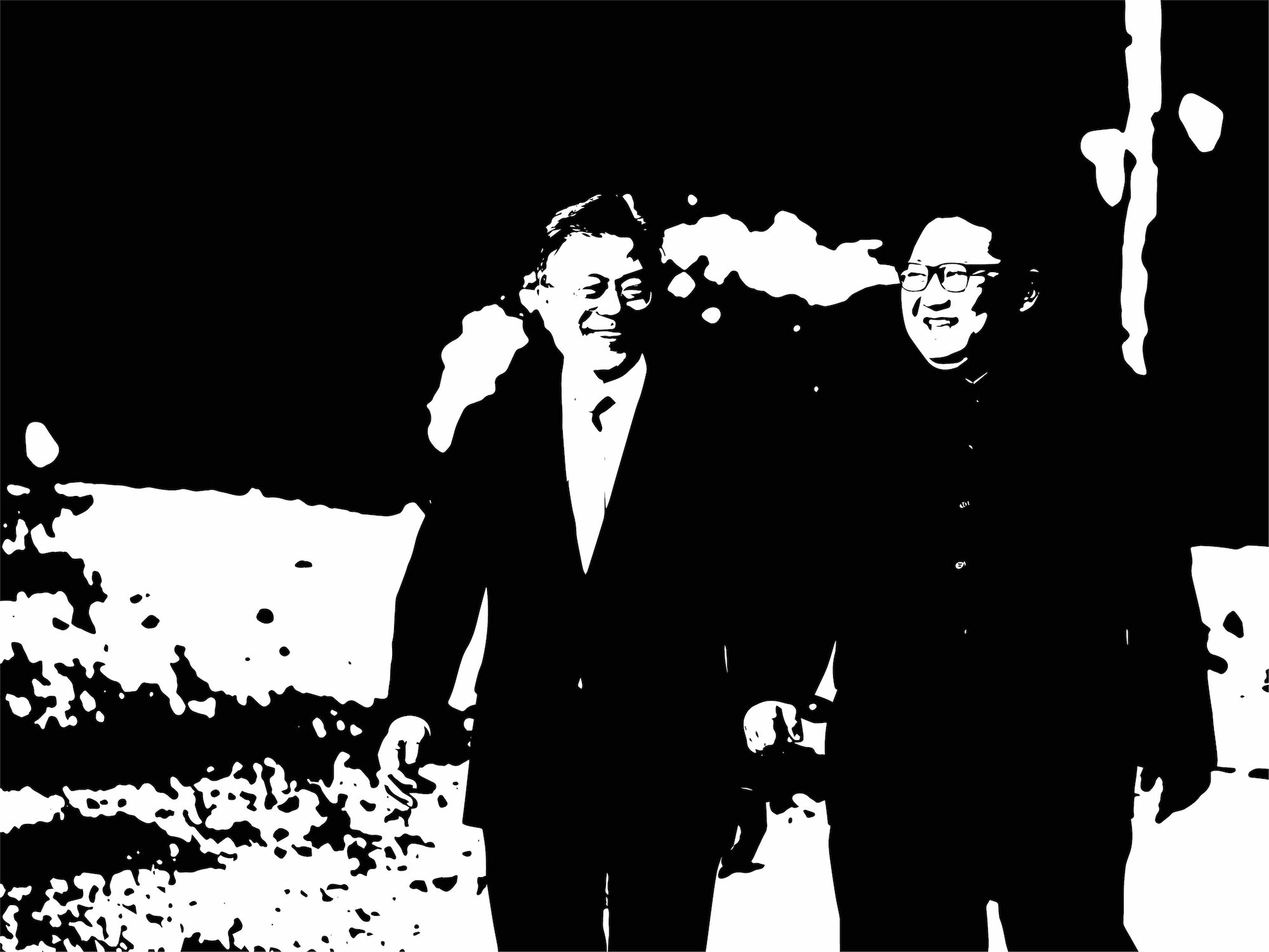South Korean President Moon Jae-in this week issued a bold proposal for greater economic cooperation between the South and North, which unfortunately was met by skepticism in Washington.
What this skepticism fails to consider is that the Singapore Summit joint statement commits the United States to establishing a new relationship with North Korea that reflects “the desire of the peoples of the two countries for peace and prosperity.” This emphasis on the “desire of the peoples” speaks to the important role that civil society should play in negotiations to bring about peace on the Korean Peninsula. Indeed, civil society, including non-profits, faith leaders, and grassroots activists, has played a key role in successful peace negotiations around the world. By democratizing the peace process, outcomes are more effective and sustainable. Research shows that civil society participation in developing peace agreements makes them 64 percent less likely to fail.
Thus, leaders on all sides of these talks would be wise to incorporate Korean civil society. As of yet, however, the US has largely failed to consider the implications of excluding Korean and US civil society in its nascent negotiations – a failure likely due to the US’ desire to seek North Korea’s total denuclearization, rather than the establishment of a peace regime as a means of securing the denuclearization of the entire peninsula.
South Korean civil society was crucial to diplomatic breakthroughs with North Korea in the 1980s and 1990s. Civil society also helped foster cross-cultural exchange and better understanding between the two countries. For example, the first non-governmental meeting since the end of the Korean War was between Christian groups from the North and South. Because of its connections to the public and the government, civil society could both encourage public support for peace while directly advocating for the government to adopt a peace-centric policy towards North Korea.
One of the three main goals of South Korean President Moon Jae-In’s North Korea strategy is an “open policy,” emphasizing public participation “to ensure that the policy can be fully understood by – and made by – the people.” As in the 1980s and 1990s, civil society led the way towards peace before traditional channels made any major breakthroughs. Some of the first steps South Korea took towards reconciling with North Korea in early 2018 involved addressing social issues promoted by civil society, including joint water management, family reunification, and fielding a joint Olympic women’s ice hockey team. Moon’s historic summit with Kim Jong-un in April resulted in more civil society-fueled initiatives as key confidence-building steps, including school field trips and a reforestation project.
At the same time, Kim has seemingly pivoted to a focus on economic and social development. This shift likely indicates that he believes his nuclear stockpile is significant enough to provide some semblance of security. Kim probably also realizes that economic development and greater international connection is essential for his regime’s long-term survival. A more open North Korea would provide an opportunity for greater civil society engagement that could incentivize government reform.
However, prior to and since the Singapore Summit, US rhetoric and negotiating strategy has appeared to be solely focused on achieving “complete, verifiable, irreversible denuclearization,” or CVID, no matter how unattainable experts note that goal may be. While a nuclear-free North Korea is certainly a desirable outcome, experts have argued that the US’s fixation on CVID holds the peace process “hostage.” Decoupling economic and social issues from more intractable political and military issues could be a way for negotiations to continue in spite of this roadblock. Civil society, especially faith and women’s groups, has already been active in promoting peace on the peninsula. Yet, the governments involved can and must do more to involve civil society in ongoing bilateral and trilateral talks.
The upcoming Moon-Kim summit in September presents a key opportunity for the inclusion of civil society. Governments should utilize civil society’s expertise and experience by soliciting feedback on their diplomatic agenda and any resulting agreements. Civil society can also facilitate further confidence-building measures, especially educational and cultural exchange, as well as build popular support for peace through campaigns and educational programs. The governments involved should also embrace the diversity of civil society and incorporate a variety of voices, especially those from marginalized groups such as women and communities on the DMZ, in order to create policies that work in favor of the majority of Koreans — not just political and military elites.
Despite Trump’s claim that North Korea is no longer a threat, the country remains a key security challenge for the United States. However, returning to threats of war won’t address North Korea’s continued nuclear development or support our South Korean allies’ desire for peace. Only continued dialogue and creative diplomacy that includes engagement across all sectors of society can bring about denuclearization and lasting, sustainable peace on the Korean Peninsula.
Sarah Chin (@sarah0chin) is an intern at Win Without War who is interested in the intersection of national security and human rights. She is pursuing a degree in Political Science from Tufts University.














